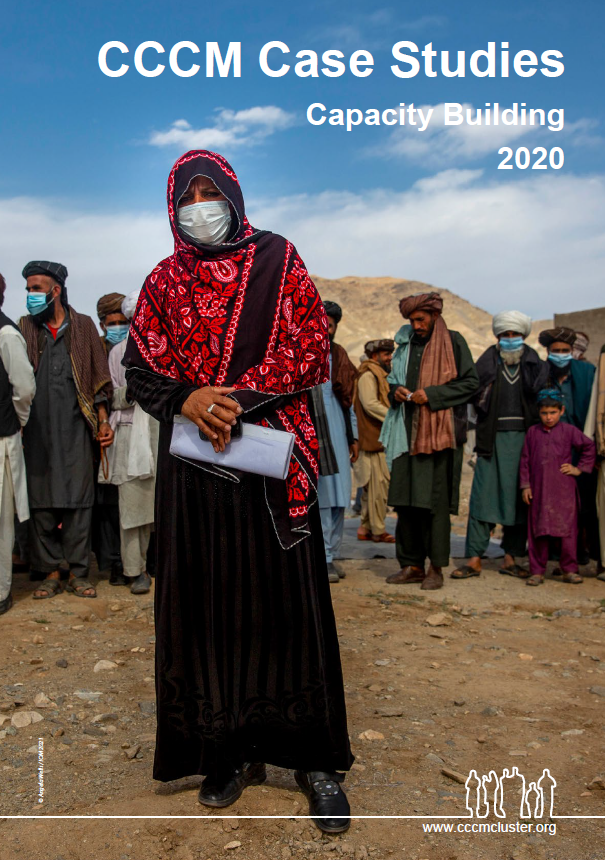The Global Camp Coordination and Camp Management (CCCM) Cluster is pleased to share with you the 2020 edition of the CCCM Case Studies. The CCCM Case Studies 2020 provides a collection of experiences and lessons learned, with concrete examples of the delivery of efficient and timely responses and a focus on adaptation to challenges presented by the COVID-19 pandemic.
In 2020, COVID-19 accelerated cluster partners’ approaches to learning with new and innovative methods. Online learning and Zoom trainings became the norm in order to provide support to teams taking on new roles and trying to reach a wider range of stakeholders, individuals, and organizations. Capacity efforts in 2020 aimed to support local NGOs and national authority counterparts, who are frequently the first responders to CCCM operations as they act in the role of de facto camp managers during sudden onset disasters and in hard-to-reach areas. The CCCM Cluster and partners each rose to this challenge in different ways. In Somalia, capacity building initiatives focused on strengthening new coordination fora and was key in obtaining the buy-in of local authorities on the added value of mobile CCCM activities. In Yemen, the Referral and Escalation System (RES) provided a formalized way to address gaps that cannot be resolved at site level as part of an CCCM area-based approach. In Indonesia, the first online CCCM localization training was piloted with national NGOs and the Ministry of Social Affairs over a period of six weeks. In Bangladesh, an agency focused on technical capacity building and trained refugee and host community members in solar light installation and maintenance. Another initiative in Bangladesh established a training platform to facilitate training of government site management staff using context specific material.

